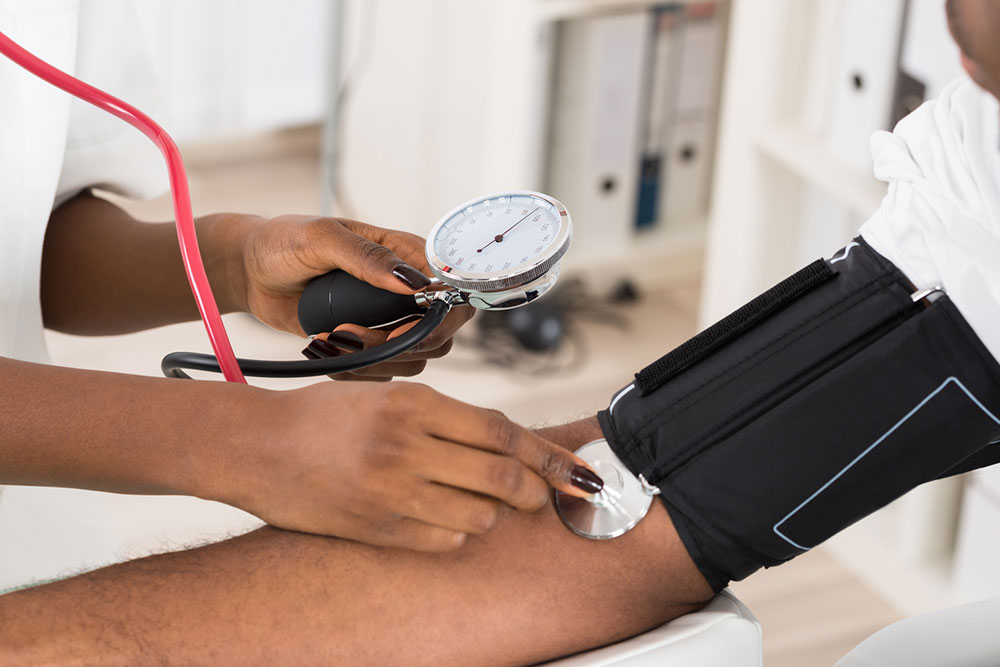Simple Tips for Lowering Blood Pressure
According to research, it is estimated that around 103 million people in the country live with high blood pressure, also known as hypertension. They also say that high blood pressure incidences rose by 38% between 2005 and 2015, killing around 79,000 people in this period. The AHA redefined high blood pressure as a reading of 130/80, from an earlier definition of a reading of 140/90. The first number is the systolic pressure (when your heart beats), and the second number is the diastolic pressure (between heartbeats).

What causes high blood pressure?
Although the exact causes of high blood pressure have never been pinpointed, health experts agree that there are a number of indicators that lead to it.
- Lack of physical exercise and the attendant weight problems
- Kidney problems
- Disorders of the thyroid and adrenal glands
- Excessive alcohol consumption (more than 2 drinks per day)
- Excessive salt intake
- Sleep disorders
- Diabetes
- Smoking
- People over 65 years are more likely to have high blood pressure
- A history of high blood pressure in the family
What are the risks of high blood pressure?
High blood pressure increases the load on your cardiovascular system. The heart is forced to pump harder. Blood vessels get hardened and develop tears. Some of the serious health conditions that develop include:
- Stroke
- Arrhythmia (irregular heartbeat)
- Heart attack
- Loss of vision
- Kidney disorders/failure
How to lower high blood pressure?
A majority of people living with high blood pressure depend on medication, with more serious conditions requiring a daily dose. However, health experts recommend lifestyle adjustments to lower the risks of developing high blood pressure. Here are some tips on how to lower high blood pressure without necessarily depending on medications.
- Physical exercise
Being physically active has been shown to be helpful in lowering blood pressure. It has been observed that that at least 150 minutes of physical exercise per week can lower blood pressure by about 5-8 mm Hg (millimeters of mercury). Cardio workouts like jogging, cycling, dancing, and aerobics are very effective in keeping your heart, lungs, and blood vessels in good condition. - Weight loss
Men with waists larger than 40 inches (102 cm) and women with waists larger than 35 inches (89 cm) are at a higher risk of developing blood pressure. It has been observed that a weight loss of 1 kilogram (2.2 pounds) results in a lowering of blood pressure by 1 mm Hg. Weight loss by physical exercise is highly recommended for its overall health benefits and is the best answer for how to lower high blood pressure . - Healthy dieting
Health experts recommend the Dietary Approaches to Stop Hypertension (DASH). This diet features lots of fruits, vegetables, whole grains, and low-fat dairy products. Foods rich in potassium e.g. bananas are also beneficial in countering sodium levels in the blood. The DASH diet has been proved to help high blood pressure sufferers to lower blood pressure by about 11 mm Hg. - Reduced sodium intake
Processed and fast foods often carry high salt content. One teaspoon of table salt contains about 2,300 mg of sodium. The recommended daily sodium intake is 1500 mg. Reduced salt intake can help lower blood pressure by 5-6 mm Hg. It helps to cut the intake of processed and fast foods. Read labels when buying food items. You can also switch to herbs and spices instead of using salt for flavor. - Lower alcohol and caffeine intake
Health experts recommend limiting alcohol intake to one drink a day for women and two drinks for men. One drink is defined as 1.5 ounces of 40% v/v (80 proof) alcohol, 12 ounces of beer, or 5 ounces of wine.
Cutting back on caffeine is very helpful if you are caffeine sensitive. You are caffeine sensitive if your blood pressure rises by 5-10 mm Hg after taking coffee.
- Quit smoking
Smoking has been associated with heart disease, in addition to lung damage. It is strongly advised to quit smoking, generally for a host of benefits, but take it as a priority if you have high blood pressure. - Stress management
High-pressure careers and lifestyles come with elevated stress levels. Stress management is highly recommended in keeping blood pressure under check. Simple stress reduction techniques include taking regular breaks at work, exercising, meditation, and yoga.
If you are wondering how to lower high blood pressure, these lifestyle adjustments can help you manage your condition and even reverse its effects. High blood pressure can be effectively managed, thereby allowing for a healthier and happier life.


